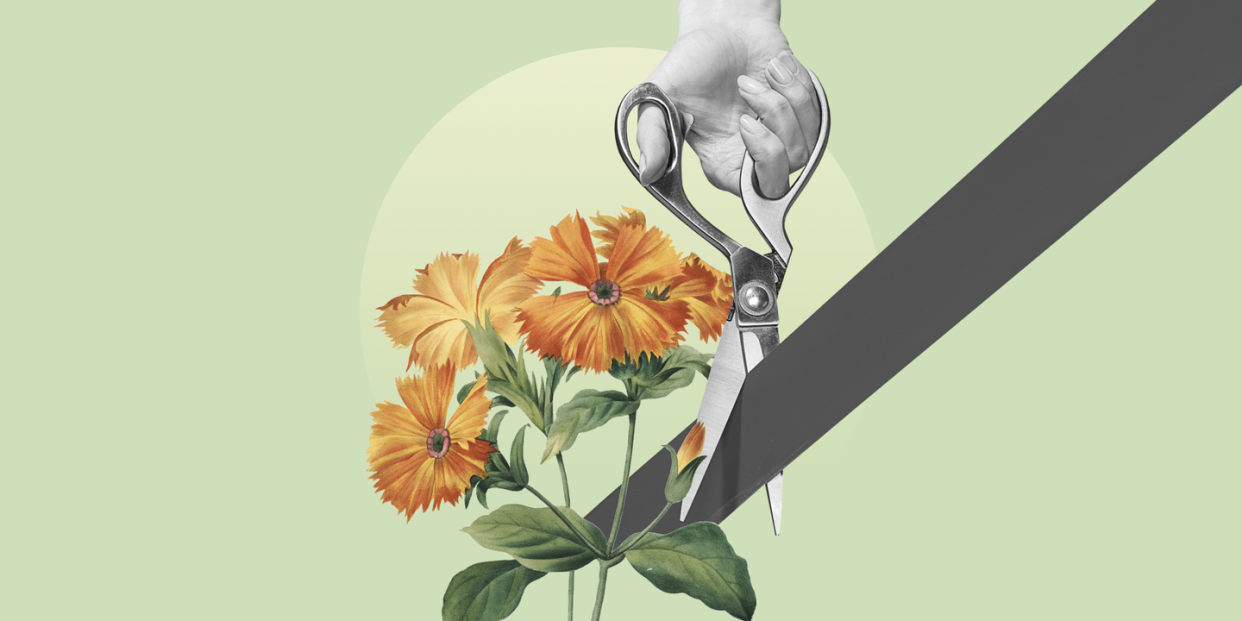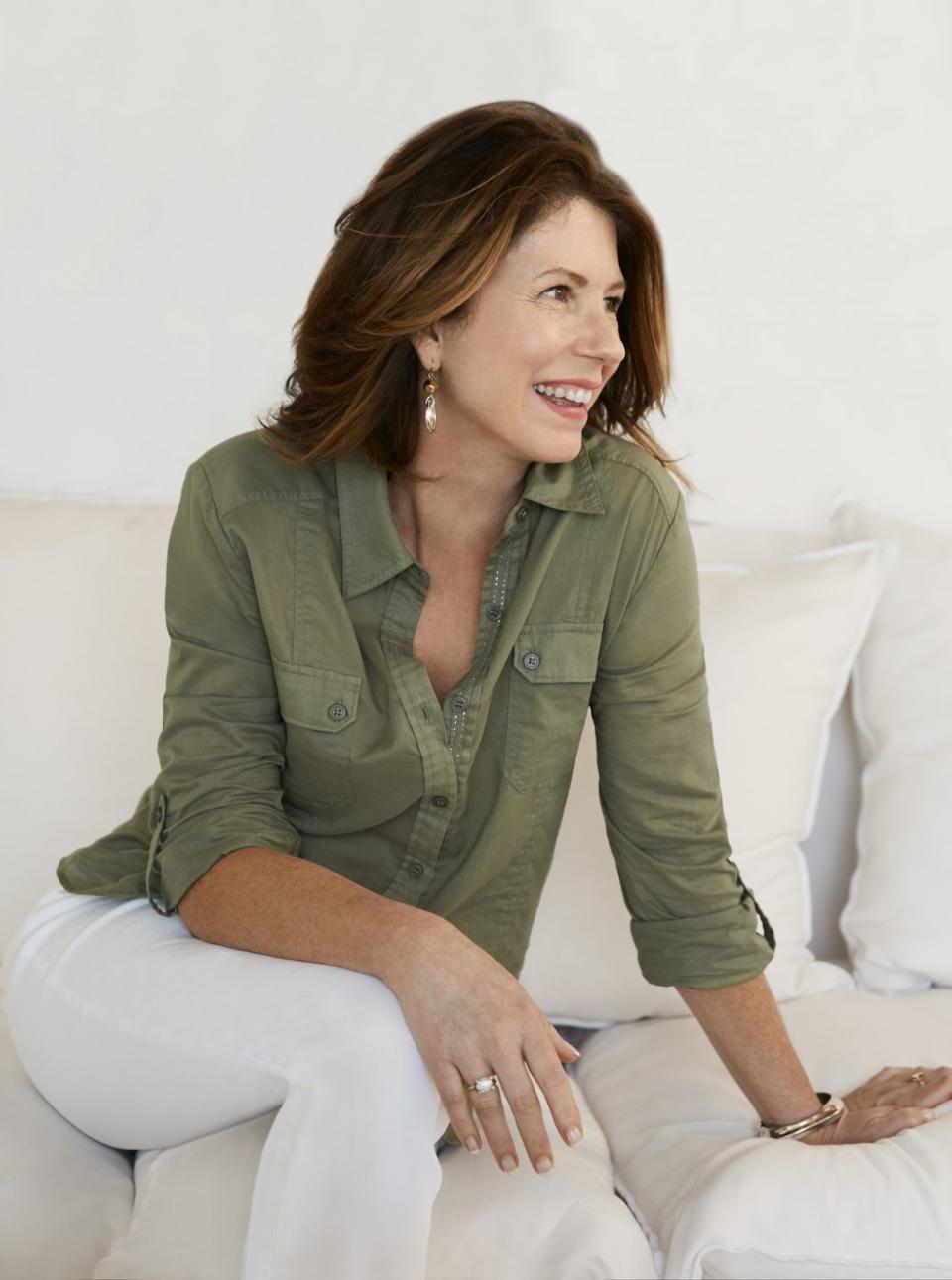Paula McLain on Inherited Trauma and How to Stop the Cycle

When I was young, anytime I was in public—in a restaurant, at the beach, or even waiting in line for the bathroom at the gas station–I was constantly seeking to recognize something familiar in strangers’ faces. I was looking for my mother. And though I didn’t remember what she looked like, I felt sure she could spot me: The skinny, curly-haired, freckle-nosed girl she had left years before.
She disappeared in 1970, when she was 25, and I was the middle of three girls, 6, 4 and 3. One day, she and a boyfriend dropped us off at our paternal grandmother’s house in Central Fresno, saying they were going to the movies and would come back for us in the morning. Except they didn’t. In the days that followed there were whispers among the grownups about what to do with us. Whispers and waiting, and bottomless sadness.
I remember feeling quietly underwater while we waited for our father to appear. He hadn’t been around in a while, and though our grandmother talked about him being away in the army, later we would learn he was actually in prison for trying to rob a drive-in movie theater with a butcher knife. Jail time was not new to him, we would discover. Nor were violence and drug addiction. But for the moment, we believed he was our knight in shining armor who would whisk us away to a more secure life. Instead, he took us to the county building where the three of us sat lined up on a bench in a long hallway, waiting quietly as he filed the necessary paperwork to surrender us to the California court system.
We spent the next 14 years shuttling through a series of kinship placements and foster homes, always together, thankfully. Many of our placements were horrifying, exposing us to neglect, violence, and sexual abuse. We were throwaway children who belonged to no one, least of all ourselves. Each time we arrived at strangers’ houses with our clothes in garbage bags, I wanted to believe things would change for the better. When they didn’t, I spent years waking up in the middle of the night. I would go into the bathroom and stare at myself in the mirror. Why is this happening? I asked, searching my face for an answer to why no one kept us. It’s your fault, my reflection replied. The most obvious answer.
I wish there was a way right now to reach out to that confused and terrified girl. I would turn her toward the mirror, and tell her things she’s never heard before: that she is precious and valuable. That she deserves to be safe and loved. That she’s looking in the wrong place for the “problem” of her life. It didn’t start with her or her sisters, who are simply children, and have done nothing wrong–but generations before. A river of sorrow and unresolved trauma that weaves through family members she’s never met, but who have struggled and thrashed in the same current.
On June 13, 1925, three days shy of her 36th birthday, my maternal great-grandmother, Anna Esther Pulliam McLain, died in a drowning accident in Oregon’s Columbia River Gorge. Her 13-year-old daughter Lorna also drowned that day, a tragedy that profoundly altered the lives of the surviving family members, including those who hadn’t been born yet. As if the lethal undertow wouldn’t rest until it touched all of us.
I’ve imagined that day a thousand times. The sun-spotted water as children play, shrieking and splashing with glee. Then the tug of slipstream at Lorna’s ankles. She thrashes breathlessly, full of raw terror as her mother–who never learned to swim–jumps in and tries to save her. Both of them are quickly taken by the current, pulled under while others watch helplessly.
My grandmother Clover was 10 when her mother and sister died. She and her younger sister were given up by their father, who decided he couldn’t care for them, much the way my father did. Later, Clover would marry young to a violent and abusive man, and settle with him near Spokane, Washington. They had five children, the youngest of whom is my mother, Rita. Except not really. When Clover became pregnant with a sixth child, my grandfather told her that there were too many mouths to feed. That if she came home from the hospital with another baby, he would leave her.
Forced with this impossible proposition, she gave the child up for adoption, and returned to her family with empty arms. But she never forgave her husband, nor did she recover emotionally. A few years later she boarded a bus east to erase one life and begin another. Her two sons stayed with their father. One sister was sent to live with a pair of maiden aunts who resided nearby. One married at 16. And my mother, at around age 9—eerily mirroring her own mother’s experience—was sent to an orphanage.
There are stories we know by heart, and others that are closer to life’s blood. Ones we live unconsciously, destined to repeat them. I might never have been aware of my lineage if my mother hadn’t come back into my life, just as suddenly and bewilderingly as she disappeared, to eventually drop small shards of stories, clues to the past.
It was the mid 80's by then, and my sisters and I had finally aged out of the system. We were living together in a dingy apartment with borrowed furniture, putting ourselves through community college with minimum wage jobs. Then a letter arrived out of the blue. Rita and some friends were going to be visiting California. She wanted to know if we were open to a visit. Honestly, my answer was no. But my sisters outvoted me. They wanted to hear what she had to say, and I felt I had no choice but to agree.
She came to the door alone, dressed in a striped shirt and white pants. Her wavy hair, the same color as mine, was combed away from her forehead. Her eyes were chocolate brown like my sister’s. Suddenly I found myself hugging her, tugged at by chaotic, incoherent feelings. She took us to a crowded Mexican restaurant. There, over chips and salsa, with mariachi music playing over the hi-fi, she tearfully asked us about our lives, without explaining where she’d been all this while, or why she’d left in the first place. We were too afraid to ask. Before the evening ended, she told us that she’d recently been at her mother’s deathbed, and made a promise—Clover’s dying wish—that she would try and find us before it was too late.
Rita seemed to want to know us, to make amends. We three had been struggling to keep our heads above water, and she offered to help. We could move to Michigan, where she was living with her husband, Jim, and go to school there. Before I knew it, we were all living together in a small Michigan town. Daughters again.
In many ways, life did get easier. I arrived in Michigan malnourished, weighing barely a hundred pounds at 5’8”. Without rent to pay, I could go to A&W every day for a root-beer float. I could buy new clothes with my wages from Domino’s Pizza. But family life was complicated. Rita and Jim were both employed by the same factory in a small, one-stop-light town. They worked all day, then went out at night, coming home late to eat take-out in the kitchen after we’d gone to bed. They fought a lot, and not in whispers. Family meals were all but nonexistent, let alone anything like intimacy or nurturing.
My sisters and I enrolled in college, determined to finish. Then Jim left Rita for a much younger woman. Watching her come undone felt both familiar and terrifying, echoing against long-buried memories of the time before she left us, when our father was always out trying to get drug money, or catting around. My earliest recollections were of trying to wake her in the middle of the day, on the couch under a crocheted blanket, her hair over her face, an ashtray full of lip-stick- stained, spent cigarettes. But she wouldn’t get up.
After Jim left, Rita finally began to talk to us about the past, little by little. These were never whole stories, just small, barbed puzzle pieces: difficult truths she had clearly wrestled with, and felt ashamed of. Like how her father once knocked out the teeth of his new wife after Clover left them. How she didn’t finish high school because she followed her first husband to Virginia for a military assignment when she was 17, in an attempt to escape her life. How our father had never been faithful to her, but threatened to kill her when he found out she had a boyfriend while he was in prison. That’s why she left us in 1970. Because she thought she was going to die.
I wish I could say I felt freer listening to her. All those years I’d carried the weight of our abandonment, feeling like damaged goods, when in truth her departure had nothing to do with me. Our violent father had left her with three kids, no support, and few choices. Life itself had as well. She’d been abandoned by her mother and raised by strangers, just as we had. I could see her woundedness, feel the way it matched and chimed against my own. But really, I was still hurting, still the aching girl who’d been thrust into chaos and pain at the age of 4.
It would take many more years and a hefty dose of counseling and psychotherapy before I could begin the long work of forgiveness. I had married, divorced and was nearly 40, battling with my ex-husband over custody of our 7-year-old son when I learned the story of Anna and Lorna’s drowning. The details sent a chill through me, and I made Rita repeat them. Anna had died just before she turned 36. I’d never struggled with any birthday, except the day I turned 36, when I climbed into the shower and found I couldn’t get out. I spent hours crying without knowing why, spinning over and over on the thought that I hadn’t done enough, or lived right, and that it was too late to change.
I soon realized it was Anna crying that day, through me. It was my grandmother on her deathbed, and my mother on the couch, too sad or lost to get up. It was all of us, swimming against the current of loss and grief. Knowing that trauma is knitted deeply into our cells, our DNA holds a lot of pain, for sure, but also hope and forgiveness. From where I write at my desk, I can see the whole story—the beginning and the middle and the end. It’s fallen to me and my sisters, now, to stop the cycle, to step out of the river and stay. Our children will never be motherless. Not even when we die one day. That’s what love does. That’s called healing: when a new story begins.

Paula McLain is the New York Times bestselling author of the novels When the Stars Go Dark (out now in paperback), Love and Ruin, Circling the Sun, The Paris Wife, and A Ticket to Ride, the memoir Like Family: Growing Up in Other People's Houses, and two collections of poetry. She lives in Ohio with her family.
You Might Also Like

